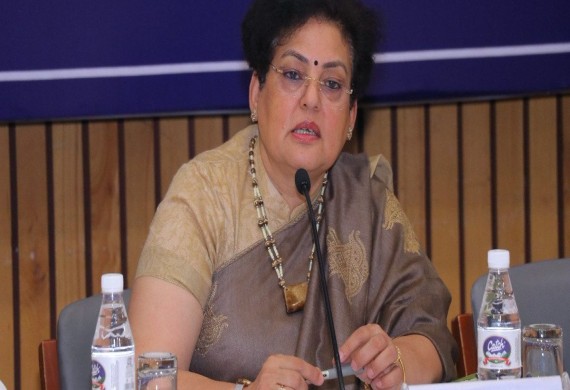
The head of the National Women's Panel meets with the Kerala Police Chief to review pending complaints
By: WE Staff | Friday, 8 April 2022
On a three-day visit to Kerala, National Commission for Women (NCW) chairman Rekha Sharma met with State Police Chief Anil Kant and discussed issues concerning women's safety, including the status of pending complaints with the commission.
Ms. Sharma raised concern about the pending allegations for which the commission had yet to obtain a police report when she finished her visit on Thursday. She also brought up the issue of sending action-taken reports late. The chairwoman examined the practice of police providing reports to the government first, which was not observed in any other state, and then sending them on ahead.
Domestic violence cases are on the rise as a result of "widespread drunkenness" in the state, as are POCSO (Protection of Children from Sexual Offenses Act) instances and sexual assaults. She brought up the subject of prejudice in tribal communities, where Dalit women are not permitted to be cremated or buried, as well as malnutrition.
Mr. Kant was told to help the father of Mofiya Parveen, a law student who purportedly committed herself as a result of domestic violence by her husband and his family. A charge sheet has been filed in this case.
Ms. Sharma urged the State Police Chief to guarantee that the survivor and her paralysed mother get sufficient housing, rehabilitation, and help in the instance of a mentally challenged girl who was raped in front of her paralysed mother.
She also spoke about the death of a sub-regional transport office employee who was differently abled. The woman's family claims she committed herself as a result of mental harassment from her coworkers. Ms. Sharma ordered the police chief to undertake a thorough and timely investigation into the case and report back to the panel within seven days.
The NCW chairman convened a 'Mahila Jansunwai' at the Police Training College auditorium here on Wednesday, when she addressed the grievances of 50 complainants and directed the officers present to take necessary action.
The panel also looked into 228 complaints, 12 complaints from non-resident Indians, and ten suo motu cases where no action had been taken.






